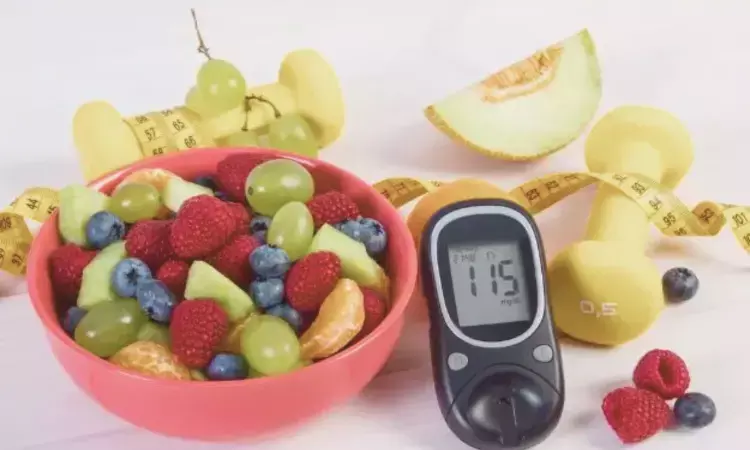- Home
- Medical news & Guidelines
- Anesthesiology
- Cardiology and CTVS
- Critical Care
- Dentistry
- Dermatology
- Diabetes and Endocrinology
- ENT
- Gastroenterology
- Medicine
- Nephrology
- Neurology
- Obstretics-Gynaecology
- Oncology
- Ophthalmology
- Orthopaedics
- Pediatrics-Neonatology
- Psychiatry
- Pulmonology
- Radiology
- Surgery
- Urology
- Laboratory Medicine
- Diet
- Nursing
- Paramedical
- Physiotherapy
- Health news
- Fact Check
- Bone Health Fact Check
- Brain Health Fact Check
- Cancer Related Fact Check
- Child Care Fact Check
- Dental and oral health fact check
- Diabetes and metabolic health fact check
- Diet and Nutrition Fact Check
- Eye and ENT Care Fact Check
- Fitness fact check
- Gut health fact check
- Heart health fact check
- Kidney health fact check
- Medical education fact check
- Men's health fact check
- Respiratory fact check
- Skin and hair care fact check
- Vaccine and Immunization fact check
- Women's health fact check
- AYUSH
- State News
- Andaman and Nicobar Islands
- Andhra Pradesh
- Arunachal Pradesh
- Assam
- Bihar
- Chandigarh
- Chattisgarh
- Dadra and Nagar Haveli
- Daman and Diu
- Delhi
- Goa
- Gujarat
- Haryana
- Himachal Pradesh
- Jammu & Kashmir
- Jharkhand
- Karnataka
- Kerala
- Ladakh
- Lakshadweep
- Madhya Pradesh
- Maharashtra
- Manipur
- Meghalaya
- Mizoram
- Nagaland
- Odisha
- Puducherry
- Punjab
- Rajasthan
- Sikkim
- Tamil Nadu
- Telangana
- Tripura
- Uttar Pradesh
- Uttrakhand
- West Bengal
- Medical Education
- Industry
Greater grapes consumption significantly associated with lower risk of type 2 diabetes

Korea: A recent study published in the Korean Journal of Family Medicine has shed light on the association between the consumption of certain fruits and the risk of type 2 diabetes (T2D).
Findings from the Korean Genome And Epidemiology Study revealed that greater grapes consumption was significantly associated with a lower risk of type 2 diabetes, but the total amount of fruit consumption was not tied to a reduced risk.
Hojun Yu, Department of Family Medicine, Seoul National University Hospital, Seoul, Korea, and colleagues aimed to determine the association between type 2 diabetes mellitus and the consumption of various fruits.
The study is an ongoing prospective longitudinal cohort study of community dwellers and participants (aged 40-69 years) recruited from a national health examinee registry in Korea. The individual consumption habits for 12 different types were obtained using food frequency questionnaires.
The fruits were categorized into three groups according to their glycemic loads and glycemic indexes. People with pre-existing T2D, extreme calorie intake, chronic liver diseases, chronic kidney diseases, and ongoing cancer treatments were excluded. Type 2 diabetes incidence in the cohort was identified through self-reporting and supplemented by glycated haemoglobin and fasting blood glucose levels.
The study revealed the following findings:
- During 283,033.8 person-years of follow-up, A total of 2,549 cases of type 2 diabetes were documented.
- After adjusting for personal, lifestyle, and dietary risk factors for diabetes, the pooled hazard ratio of type 2 diabetes for every serving per week of total whole fruit consumption was 1.02.
- With mutual adjustment of individual fruits, the pooled hazard ratios of type 2 diabetes for every serving per week were 0.94 for bananas and 0.90 for grapes.
"Our results suggest associations between the consumption of certain fruits and the risk of type 2 diabetes development," the researchers wrote.
"A greater grapes consumption was significantly associated with a lower risk in our cohort, but the total amount of fruit consumption was not tied to a reduced risk," they concluded.
Reference:
Yu, Hojun, et al. "Fruits and the Risk of Type 2 Diabetes: the Korean Genome and Epidemiology Study Cohort." Korean Journal of Family Medicine, 2023.
Dr Kamal Kant Kohli-MBBS, DTCD- a chest specialist with more than 30 years of practice and a flair for writing clinical articles, Dr Kamal Kant Kohli joined Medical Dialogues as a Chief Editor of Medical News. Besides writing articles, as an editor, he proofreads and verifies all the medical content published on Medical Dialogues including those coming from journals, studies,medical conferences,guidelines etc. Email: drkohli@medicaldialogues.in. Contact no. 011-43720751


